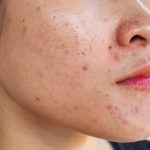
Findings seen among U.S. adults, with trend driven by adults younger than 44 years read on >

Findings seen among U.S. adults, with trend driven by adults younger than 44 years read on >

An awkward fall while running, skiing or playing sports can cause knee injuries that sideline players and increase their risk of future arthritis. But most of the time, there’s nothing wrong with their noses, and that might prove the key to repairing their knees and getting them back on their feet, a new study suggests. Replacement cartilage engineered from the nasal septum — the cartilage wall that separates the left and right airways in your nose — can be used to repair even the most complex knee injuries, researchers report in the journal Science Translational Medicine. “Nasal septum cartilage cells have particular characteristics that are ideally suited to cartilage regeneration,” senior researcher Ivan Martin said in a news release. He’s head of biomedicine with the University of Basel in Switzerland. For example, it has been shown that these cells can counteract inflammation in joints, researchers said. Torn cartilage in the knee can create long-term problems for active people, because this tissue does not heal itself. Cartilage forms a buffer between bones, and a loss of cartilage will eventually lead to arthritis. The new knee repair process involves extracting cells from a tiny piece of a patient’s nasal septum, and then growing the cells in a lab on a scaffold made of soft fibers, researchers explained in background notes. The newly grown cartilage is then cut… read on > read on >

Sleep is a critical component for concussion recovery among kids, a new study reports. Limiting naps during the day and getting about seven hours of sleep each night in the first week after a concussion appears to speed up recuperation, researchers reported in the British Journal of Sports Medicine. Getting seven hours of sleep each night doubled a child’s chances of recovering quickly during the first week after a concussion, researchers also found. On the other hand, every hour spent napping during the daytime decreased by 12% the likelihood their concussion symptoms would diminish within the first week, results show. “Youth who sleep more during the day or who sleep too much or too little each day may be at risk for slower concussion symptom resolution,” said lead researcher Jingzhen Ginger Yang, principal investigator with the Nationwide Children’s Hospital Center for Injury Research and Policy in Columbus, Ohio. “Good sleep hygiene, including limiting daytime sleep/naps and instead focusing on getting enough sleep at night, could help speed concussion recovery,” she added in a news release. About 2 million kids younger than 18 suffer a concussion each year in the U.S., researchers said in background notes. It’s common for kids recuperating from a concussion to have bad sleep, with up to 34% reporting excessive sleep, loss of sleep or trouble falling asleep, researchers added. For the study,… read on > read on >

A simple rule change for youth soccer dramatically reduced concussion risk among athletes, a new study says. Banning or limiting headers — plays where the head is used to pass or shoot the ball — is linked to a nearly 26% reduction in soccer-related concussions treated in emergency rooms, researchers are scheduled to report at a meeting of the American Academy of Orthopedic Surgeons in San Diego this week. “Although not all concussions result from headers, a measurable percentage still do, and it is encouraging to observe a trend indicating a decline in concussion rates,” senior researcher Dr. Anikar Chhabra, director of sports medicine at Mayo Clinic Arizona, said in a news release. About 3.9 million children play organized soccer in the U.S. each year, making it one of the most popular youth sports in America. Headers have long been associated with concussion risk, so in 2016, the U.S. Soccer Federation banned headers in athletes younger than 10 and limited the time players aged 11 to 13 could practice headers to a half-hour per week, researchers said in background notes. “We wanted to assess the impact of this policy on our patients,” researcher Dr. Eugenia Lin, an orthopedic surgery resident at Mayo Clinic Arizona, said in a news release. “While policies are important, we don’t always have the data to determine the effectiveness.” For the… read on > read on >

Firefighters might face a higher risk of brain cancers caused by exposure to chemicals in fire extinguishers, a new small-scale study says. Veteran firefighters appear to have a higher risk of brain tumors called gliomas, which can be caused by gene mutations linked to flame retardant chemicals called haloalkanes, researchers reported in a study published March 10 in the journal Cancer. Previous studies have highlighted a mutational pattern, or “signature” in gliomas linked to haloalkane exposure, researchers said. “In these data, we confirm detection of this signature in a cohort of individuals likely highly exposed to haloalkanes, i.e., long-term firefighters,” a team led by senior researcher Dr. Elizabeth Claus, director of medical research at the Yale University School of Public Health, wrote. Gliomas are the most common type of brain cancer, researchers said in background notes. About one-third of all brain tumors are gliomas, according to Johns Hopkins Medicine. For the study, researchers found 17 firefighters with gliomas participating in a University of California-San Francisco study of adults with this form of brain tumor. The firefighters had been on the job for an average of 22 years. They compared the tumors of the firefighters with 18 other participants in the brain tumor study who worked in other fields. “As firefighters have exposure to such chemical agents, we examined mutational signatures in glioma brain tumors diagnosed… read on > read on >

A mother’s diet during pregnancy can influence her child’s risk of ADHD and autism, a new study says. In particular, the unhealthy hallmarks of a typical Western diet appeared to increase a child’s risk of developmental disorders, researchers reported in the journal Nature Metabolism. “The greater a woman’s adherence to a Western diet in pregnancy – high in fat, sugar, and refined products while low in fish, vegetables, and fruit — the greater the risk appears to be for her child developing ADHD or autism,” lead researcher Dr. David Horner of the University of Copenhagen in Denmark said in a news release. Even slight moves toward a more Western diet were linked to a 66% increased risk of ADHD and a 122% increased risk of autism, researchers found. But this also means that even small dietary adjustments away from a Western pattern of eating could potentially reduce a child’s risk of developmental disorders, researchers added. For this study, researchers started by identifying more than 500 Norwegian 10-year-olds diagnosed with a developmental disorder, and then analyzed what their moms ate during pregnancy. In that group, they found significant associations between an expecting mother’s diet and later ADHD and autism diagnoses among their children. A Western dietary pattern was tied to a 53% increased risk of any developmental disorder, results showed. The team then tested those associations… read on > read on >

Sleep-deprived night shift nurses are at greater risk for the common cold and other infectious diseases, a new study says. Shift work and its impact on quality sleep can wreak havoc on nurses’ immune systems, making them more vulnerable to infection, researchers report in the journal Chronobiology International. “Sleep debt and irregular shift patterns, including night work, not only compromise nurses’ immune health but could also impact their ability to provide high-quality patient care,” senior researcher Siri Waage said in a news release. She’s coordinator of the Norwegian Competence Center for Sleep Disorders at Haukeland University Hospital in Bergen. Nurses who got up to two hours’ less sleep than they needed had a 33% higher risk of the common cold, and the risk was double among nurses with more than two hours of sleep debt, researchers said. Their risk of pneumonia and bronchitis also increased dramatically with a lack of sleep, running nearly 2.3 times higher with moderate sleep debt and 3.9 times higher with severe sleep debt, results show. Sinusitis and GI infections also were more common among nurses who weren’t getting enough sleep, researchers added. For the study, researchers analyzed data from more than 1,300 Norwegian nurses. Results showed that shift work, particularly on the night shift, was associated with higher risk of infection. However, night shift work was solely linked to an… read on > read on >

A startling number of Americans have witnessed a mass shooting in their lifetime, a new study suggests. About 1 in 15 adults have been present at the scene of a mass shooting, and more than 2% have been injured in one, researchers say in JAMA Network Open. “This study confirms that mass shootings are not isolated tragedies, but rather a reality that reaches a substantial portion of the population, with profound physical and psychological consequences,” senior researcher David Pyrooz, a professor of sociology and criminology at the University of Colorado-Boulder’s Institute for Behavioral Science, said in a news release. Younger generations are significantly more likely to have been in the middle of a mass shooting than their parents or grandparents, researchers found. Generation Z – adults born after 1996 – are at greatest risk. “Our findings lend credence to the idea of a ‘mass shooting generation,’ ” Pyrooz said. “People who grew up in the aftermath of Columbine have these unique experiences that are really distinguishable from the older population.” He was referring to what remains as one of the most infamous school massacres in U.S. history. On April 20, 1999, two 12th-graders murdered 12 students and a teacher at Columbine High School in Colorado. For the study, researchers surveyed 10,000 U.S. adults in January 2024. Participants were asked a series of questions, including “Have… read on > read on >

LED light therapy is touted by social media influencers as a trendy way to treat acne. And it actually appears to work, a new evidence review suggests. Both red and blue LED light therapy are safe and effective in clearing up mild to moderate acne, researchers reported in JAMA Dermatology. “We found individuals who use red and/or blue LED devices experienced a significant reduction in both inflammatory and non-inflammatory acne lesions compared to the control groups,” senior researcher Dr. John Barbieri, director of the Advanced Acne Therapeutics Clinic at Brigham and Women’s Hospital in Boston, said in a news release. LED light therapy is thought to work by targeting the bacteria that causes acne and reducing skin inflammation, researchers said in background notes. Blue LED light therapy also might reduce activity in the sebaceous glands of hair follicles, causing them to produce less pore-clogging oil, Harvard Medical School says. It affects the uppermost layer of skin. On the other hand, red light is believed to act on skin cells that play a role in producing collagen, a protein that helps skin recover when damaged, Harvard says. Red light penetrates deeper into skin. For their review, researchers pooled data from six studies of LED therapy for acne involving 216 participants. The LED devices resulted in about a 45% improvement in acne lesions and symptoms compared to… read on > read on >

Female cancer survivors who walk and exercise more have a lower risk of dying from heart disease, a new study suggests. One hour a day of moderate to vigorous physical activity reduced women’s risk of death from any cause by 40% and risk of death due to heart disease by 60%, results show. Likewise, each additional 2,500 steps per day was associated with a 34% reduction in their risk of death from heart disease, according to findings presented Sunday at an American Heart Association (AHA) meeting in New Orleans. “Encouraging cancer survivors to be more active, sit less and take more steps every day could be a feasible approach for prolonging survivorship and reducing the risk of cardiovascular disease mortality,” lead investigator Eric Hyde, a research analyst at the University of California-San Diego, said in a news release. Physical activity is a key component of Life’s Essential 8, the AHA’s list of health behaviors and factors that support the best heart health. The AHA recommends at least 150 minutes per week of moderate-intensity physical activity like walking or gardening, or 75 minutes per week of vigorous-intensity exercise like running or swimming. A combination of these is also an option. And it’s known that cancer survivors are at an increased risk of heart disease, due to the rigors of both cancer and toxic treatments like chemotherapy… read on > read on >









